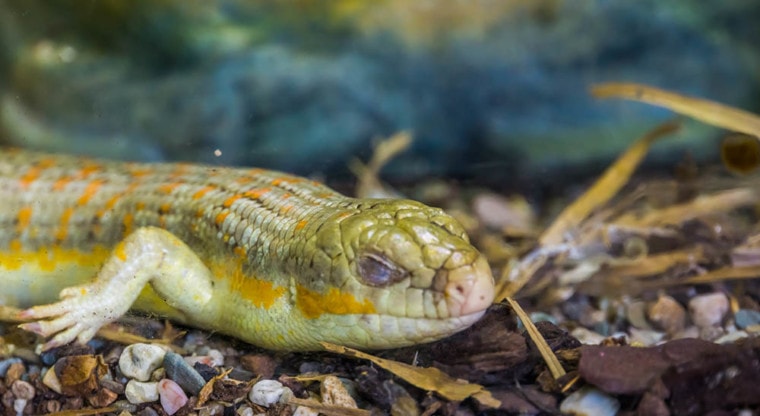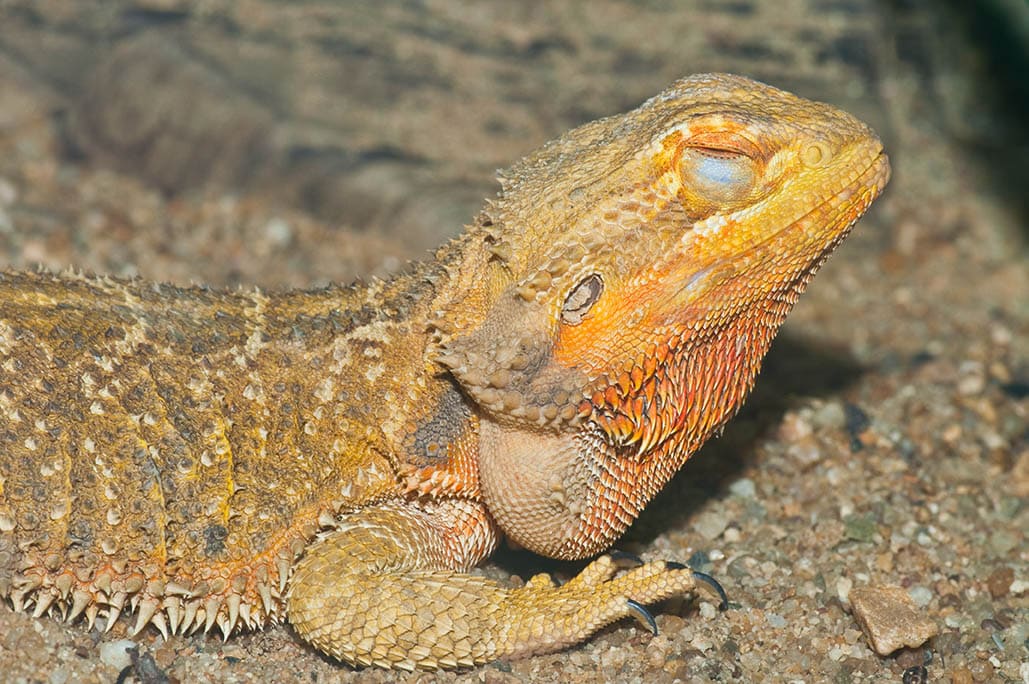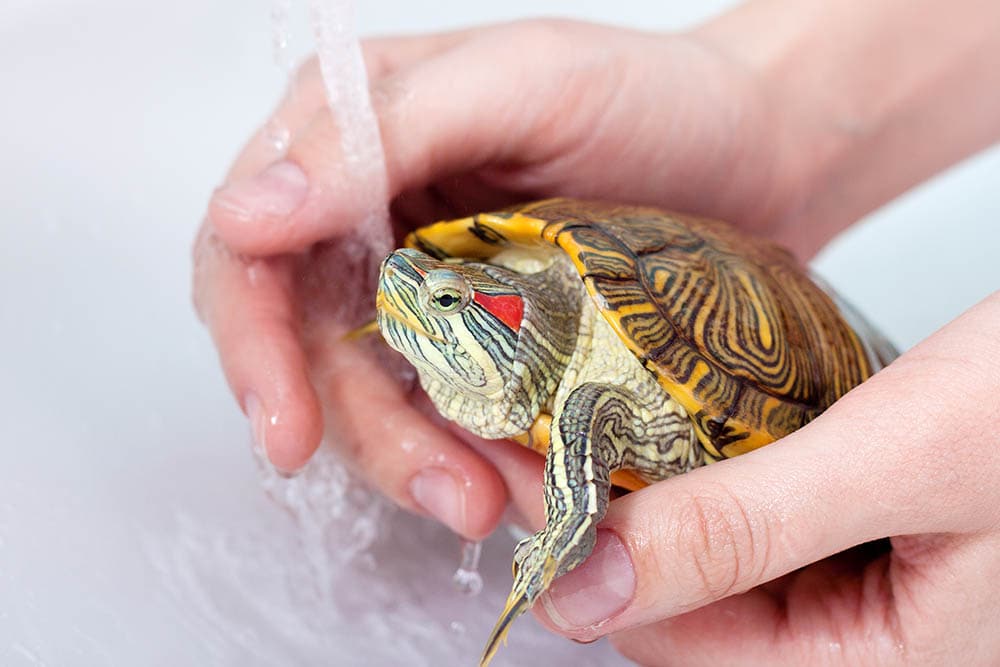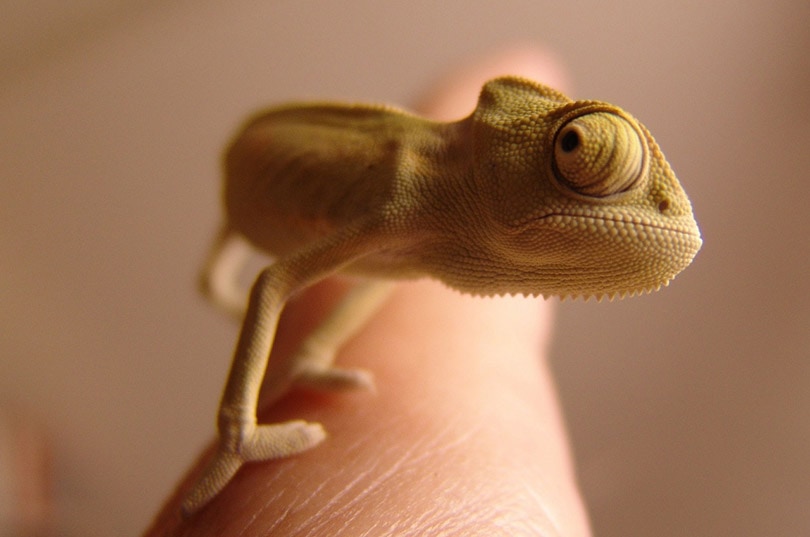
Reptiles are cold-blooded and as such, rely on their environment for thermoregulation. But when their environment gets too cold, they are not able to thermoregulate, which has led to adaptations like brumation to help them survive in the wild. Brumation helps reptiles survive the cold winter months by effectively shutting down their movement and metabolism until warmer temperatures occur.
While many captive reptiles do not experience brumation due to the lack of change in their environment, it’s still a useful process for any reptile owner to become familiar with. In this article, we look at what brumation is, how long it lasts, and whether your reptile pet should experience it. Let’s dive in!
What Is Brumation?
Most people are familiar with hibernation, a state of dormancy that some mammals go into during cold periods of the year. Many assume that snakes and other reptiles also hibernate, as they are rarely seen during winter months, but reptiles do not hibernate. They go through a similar yet distinctively different process called brumation.
Brumation, also known as “dormancy,” is similar to hibernation in many ways. A reptile’s body will basically shut down and conserve energy until the coming warmer weather. They will become lethargic and largely immobile for the duration of the colder temperatures, usually inside small burrows, crevices, and caves. While hibernation almost always happens during winter, brumation can occur at any time of the year. During this time, they will still need to drink water but may eat less or not at all and move less, although some reptiles will become active for a small period, during which they eat and drink, and then go back to dormancy.

Why Do Reptiles Brumate?
Since reptiles are cold-blooded and need to heat their bodies from their surroundings, they need to adapt to whatever temperatures are around them. Sudden weather changes can cause them to brumate because they are forced to lower their metabolism in order to survive. This is especially true in reptiles that live in areas with harsh winters, although brumation is not only a seasonal activity and can occur at any time. Equatorial reptiles have less need for brumation but are still known to undergo a milder version of the process when the weather gets colder.
A lack of food is another common trigger for brumation because during colder months, there are fewer plants and less vegetation for insects to eat and therefore, less food for most reptiles.
Bearded Dragons are the most well-known reptile for their brumation, although they can be varying in the habit, sometimes not brumating for a few years or not at all, depending on the climate. Some turtles, tortoises, snakes, and amphibians are also known to brumate frequently.

Brumation in Captivity
Brumation occurs due to changes in outside temperatures in a reptile’s environment. Since captive reptiles usually experience constant temperatures, light, and humidity in their enclosures and have a constant food source, brumation is unnecessary for them. Of course, some reptiles are keenly sensitive to their environment, and even if the ambient temperatures are kept exactly the same inside your reptile’s enclosure, they may still sense the change in light and temperature coming from outside. Even a drop of only a few degrees may be enough to trigger brumation.
If your reptile goes into brumation in captivity, there is no reason to worry. Just make sure they have enough water to drink, and be sure not to disturb them. Some breeders will purposely induce brumation in their reptiles for breeding purposes, as in the wild, this is a signal for reptiles to begin preparing their bodies for breeding. There is a great deal of debate as to whether this is necessary. Many breeders have success without inducing brumation, while others insist that brumation improves fertility rates in breeding pairs. It’s up to you to experiment and see what works best.

Impact of Brumation on Health
If you do not intend to breed your pet reptile, inducing brumation is unnecessary, according to most experts. That said, some reptile keepers insist on replicating the natural conditions of their reptiles as closely as possible. Many reptile keepers debate that giving your pet an annual break from food, digestion, and activity is good for their overall health and will result in a longer lifespan of your reptile. This seems to make sense, given that most large reptiles have relatively long lifespans. But it is unproven by studies, and true brumation seems unnecessary to maintain healthy pet reptiles.
While the effects on health are debatable, brumation is not a bad thing and if done correctly, shouldn’t harm your reptile. That said, in the wild, brumation is a difficult time for reptiles and may put a great deal of strain on their bodies. They may enter into it without ever coming out, possibly due to extreme temperatures or entering into the process with an injury or illness.
There is still risk with brumation in captivity, just far less so than in the wild.
How Long Does Brumation Last?
Brumation length will differ depending on the species and their environment. Although some generalizations can be made, brumation times can vary widely. Desert and temperate species or reptiles with bigger temperature shifts in their natural habitat tend to have longer brumation periods, while equatorial species may not brumate at all or brumate for short periods, with only a mild shift in behavior and feeding.
Final Thoughts
Brumation is a natural process for reptiles in the wild and is a vital part of their survival at times. In captivity, though, it is unnecessary and usually will not happen due to the consistent temperatures and conditions in their enclosure. That said, some breeders see value in inducing brumation in their reptiles for breeding and health reasons, although this has not yet been proven to be necessary.
See also:
- Hibernation vs Brumation vs Estivation: Vet Reviewed Differences
- Do Snakes Hibernate In the Winter? Facts & FAQ
Featured Image Credit: Charlotte Bleijenberg, Shutterstock








